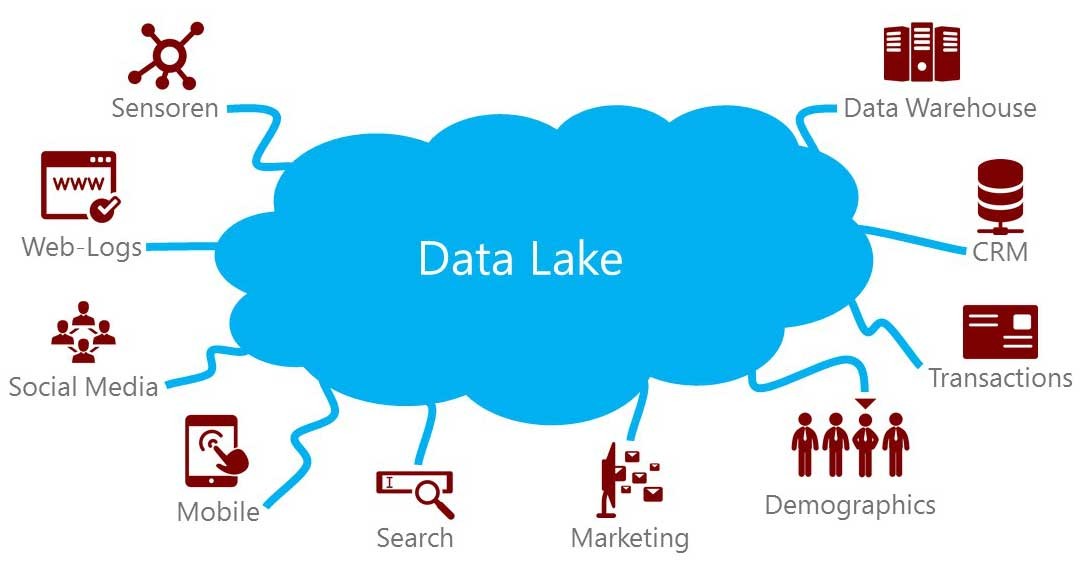Blog
The Data Lake Paradigm Shift: How Cloud Data Lakes Can Help
INTRODUCTION
Data lakes are rapidly gaining popularity among organizations, and for good reason. Cloud-based data lakes are revolutionizing the way organizations store and analyse data, and the benefits are simply too lucrative to pass by. From scalability that knows no bounds, to wallet-friendly cost savings, and unparalleled flexibility, the cloud-based data lake is a burgeoning data solution. Join us as we deep-dive into the significant perks of constructing a data lake on the cloud.
Expand-o-capacity:
One of the key advantages of building a data lake on the cloud is scalability. The cloud-based data lake can easily scale to accommodate increased data volumes, without having to worry about hardware limitations. This means that organizations can store as much data as they need, without having to worry about data migration or hardware upgrades.
Affordable Awesomeness:
Another major benefit of building a data lake on the cloud is the cost savings that it provides. Cloud-based data lakes eliminate the need to invest in expensive hardware and infrastructure, and instead offer a pay-as-you-go model. This not only saves on upfront costs but also provides a flexible solution that can easily adapt to changing business needs.
Connecting the dots on Intel:
Building a data lake on the cloud also makes it easier to integrate data from various sources, including databases, applications, and cloud services. With a centralized data repository, organizations can easily collect and manage data from a variety of sources, providing a complete picture of their operations.
Hassle-free insights:
The cloud-based data lake also provides easy access to data for organizations, regardless of the size of the data set. With the ability to store and manage large data volumes, organizations can quickly and easily access the data they need, without having to worry about performance issues. This means that organizations can make faster, more informed decisions based on the data they have available.
Digital Defence:
Another important benefit of building a data lake on the cloud is the security it provides. Cloud providers offer robust security measures to protect data, including encryption, firewalls, and intrusion detection systems. This means that organizations can store their data with confidence, knowing that it is protected from cyber threats.
Bend it like Beckham:
Building a data lake on the cloud also provides organizations with the flexibility they need to adapt to changing business needs. With the ability to store and manage data from a variety of sources, organizations can easily adjust their data strategies as their needs change.
Idea Incubation:
The cloud-based data lake also makes it easier for organizations to collaborate on data projects. With the ability to store and manage data from a variety of sources, team members can easily access the data they need, regardless of their location. This means that organizations can work together more effectively, even when they are geographically dispersed.
The Great Data Redemption:
Another important benefit of building a data lake on the cloud is the disaster recovery capabilities it provides. In the event of a data loss or disaster, cloud providers can quickly restore data from their backups, ensuring that organizations have access to the data they need to continue their operations.
Quick-draw Data:
Building a data lake on the cloud also enables organizations to process data in real-time. With the ability to store and manage large data volumes, organizations can quickly process data as it arrives, providing real-time insights and enabling them to make quick decisions.
IN CONCLUSION
From self-service analytics and visual data engineering, to MLOps and Auto MLOps, businesses can now streamline and optimize their processes, increasing efficiency and productivity. With the cloud technology providing security and governance, businesses can rest easy knowing that their data is safe and secure. So whether you’re looking to improve your data management, increase the speed of your data pipeline, or simply cut costs, a cloud data lake has something for everyone!

Recent Blogs
Profisee vs. Reltio: Choosing the Right Master Data Management Solution
Master Data Management (MDM) is crucial for businesses looking to maintain accurate, consistent, and accessible master data.
Revolutionizing Business Analysis: Meet Wizard™ Core AI
Businesses relying on static dashboards and manual reporting are losing millions in unrealized opportunities and inefficiencies. In today’s AI-driven economy, agility in decision-making isn’t an advantage—it’s a requirement.
Revolutionizing Business Intelligence: Introducing WizarD™ Core
Collecting and analysing participant feedback is essential for improving events and making informed decisions. However, feedback forms—often filled with unstructured data in formats like PDFs—pose a significant challenge for extracting meaningful insights.

